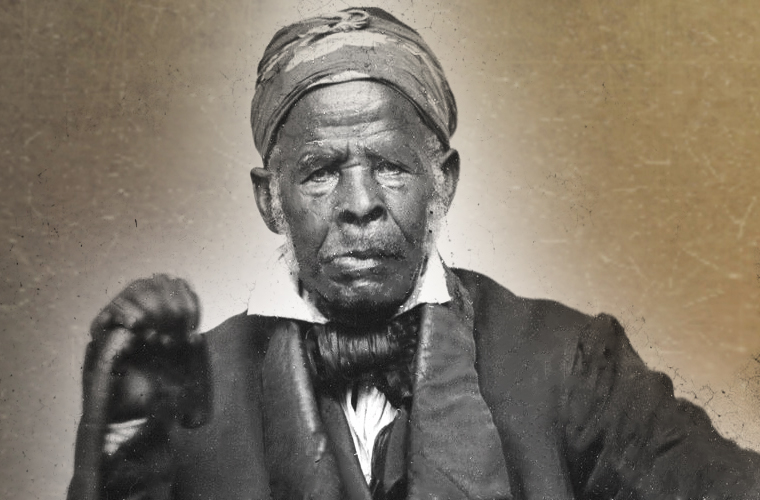Omar ibn Said, also known as Umar ibn Said, was a West African Muslim scholar who was enslaved and brought to the United States in the early 19th century. He is known for his remarkable autobiography, written in Arabic, which provides insight into his life as an enslaved person and offers a unique perspective on the experiences of African Muslims during that time. Omar ibn Said was born in Futa Toro, which is now part of modern-day Senegal, around the year 1770. He was well-educated and came from a prominent Muslim family. In 1807, at the age of 37, he was captured and taken as a slave by members of a neighboring tribe who sold him to European slave traders. He was eventually transported to the United States, where he was purchased by James Owen, a wealthy landowner in North Carolina.
Despite being enslaved, Omar ibn Said continued to practice his faith and sought ways to express his religious beliefs and maintain his cultural identity. He was known for his devotion to Islam and his commitment to prayer and fasting. His knowledge of Arabic and Islamic scholarship set him apart from many other enslaved individuals in the United States at that time. In 1831, Omar ibn Said wrote his autobiography in Arabic, titled “The Life of Omar ibn Said, Written by Himself.” This manuscript is considered one of the few surviving autobiographical accounts of a Muslim slave in the United States. In his autobiography, Omar ibn Said reflects on his life before and after enslavement, his experiences in different parts of Africa, and his struggles with the language and culture of his captors.



The autobiography also contains passages from the Quran and references to Islamic teachings, providing valuable insights into the religious and intellectual life of an African Muslim during a tumultuous period in American history. Omar ibn Said’s writing demonstrates his deep faith, his resilience in the face of adversity, and his unwavering commitment to his identity as a Muslim. In addition to his autobiography, Omar ibn Said also wrote numerous Arabic manuscripts on Islamic theology and law during his time in captivity. These writings are evidence of his continued engagement with Islamic scholarship and his desire to impart knowledge to others. Despite the challenges he faced as an enslaved person, Omar ibn Said remained dedicated to his faith and intellectual pursuits.
Omar ibn Said’s life and writings challenge conventional narratives of slavery in the United States and highlight the diversity of religious and cultural traditions among enslaved Africans. His story serves as a powerful reminder of the resilience and agency of individuals who were subjected to the brutalities of slavery. Through his autobiography and other writings, Omar ibn Said left a lasting legacy that continues to inform our understanding of the experiences of African Muslims in the early 19th century.
Today, Omar ibn Said’s autobiography and manuscripts are preserved in various archives and libraries, where they are studied by scholars and researchers interested in African American history, Islamic studies, and the history of slavery. His writings offer a rare firsthand account of slavery from the perspective of a Muslim intellectual, enriching our understanding of the complexities of identity, faith, and resistance in the context of enslavement.
Omar ibn Said’s legacy extends beyond his written works. His life story has inspired artists, writers, and activists who seek to honor his memory and amplify the voices of marginalized individuals in history. His courage and determination continue to resonate with people around the world, serving as a testament to the enduring strength of the human spirit in the face of oppression. In recognition of his contributions to our understanding of history and culture, Omar ibn Said’s life has been commemorated through various initiatives, including academic conferences, museum exhibitions, and public memorials. These efforts aim to elevate his legacy and ensure that his remarkable story is not forgotten.
As we reflect on the life of Omar ibn Said, we are reminded of the importance of preserving diverse historical narratives and recognizing the agency of individuals who have been marginalized or silenced. His autobiography stands as a testament to the power of personal storytelling and the enduring legacy of those who have struggled for freedom, dignity, and justice.
Omar ibn Said’s life serves as a powerful example of resilience, faith, and intellectual curiosity in the face of adversity. His story challenges us to confront the complexities of history and to acknowledge the rich diversity of experiences within the broader narrative of American slavery. By engaging with his writings and honoring his memory, we honor the contributions of African Muslims and all those who have sought to assert their humanity in the face of oppression.

